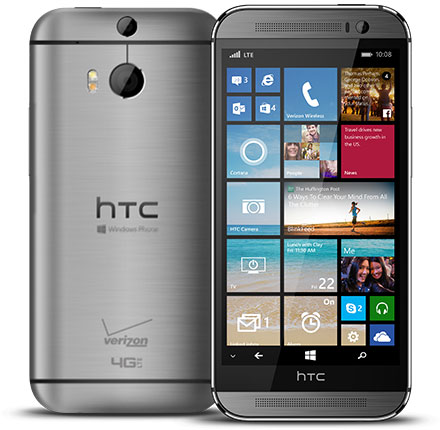HTC, which in recent years spurned Windows Phone for Android, on Tuesday returned to the Microsoft fold with the launch of a Windows Phone version of its flagship HTC One (M8) smartphone.
The HTC One (M8) for Windows debuted as a Verizon Wireless network exclusive. The two-year contract price at Verizon Wireless is $200. AT&T also will carry the phone, but it hasn’t said when that will be.
Helping Hands?
HTC has been flailing in the market for years, and it has predicted that Q3 will be yet another losing quarter. That will be the company’s 12th consecutive quarter of declining revenue on an annual basis.
Microsoft’s mobile division isn’t doing too well either; its Q2 shipment of 7.4 million Windows Phone devices was 9.4 percent down year over year, IDC reported.
So, is the partnership a case of two ailing giants propping each other up as they hobble along?
“Microsoft’s leaning on HTC, and in return they’re getting another real great flagship device,” Ramon Llamas, a research manager at IDC, told TechNewsWorld. “Microsoft earlier this year announced partnerships with a number of companies that specialize in entry-level devices in emerging markets, so this fills a gap for them.”
Tech Specs for the HTC One (M8) for Windows
By all accounts, the HTC One (M8) for Windows is identical to the recently unveiled Android version, except for the OS.
Windows Phone is not just a skin on top of Android on this device; it is the core OS, and that might prove to be a plus.
For example, the HTC BlinkFeed feature is integrated into the Windows Phone Live Tile layout.
BlinkFeed is one of the features of the Android version of the HTC One (M8) that’s included in the Windows version.
Other features in the Android version that also show up in Windows: HTC BoomSound; Duo Camera with UltraPixel; Video Highlights; a 5 MP wide-angle front-facing camera; and support for the HTC Dot View case.
The device runs Windows Phone 8.1 Update. It comes with Cortana, the Windows Phone personal digital assistant.
Apps Corner sandboxes apps and folders into a protected area so the HTC One (M8) for Windows can be used as a point-of-sale device without exposing personal information.
The HTC One (M8) “is one of the best phones on spec in the market, but it has been overshadowed by Samsung’s offering,” Rob Enderle, principal analyst at the Enderle Group, told TechNewsWorld. “Samsung can afford to spend far more on marketing. Microsoft will help market this phone, and HTC needs all the help they can get.”
App Store Issues
Apps are critical for mobile devices, and the Windows App Store is riddled with malware, according to How-To-Geek.
“I’m a Windows Phone user myself and haven’t run into this, but that’s largely because I know what apps I want and don’t go exploring often any more,” Enderle remarked.
The problem “could likely be the result of too much focus on volume and not enough focus on quality,” he said.
Microsoft has been scrambling to increase the number of apps it offers to catch up to Apple and Google.
A Lifeline for HTC
In any event, Microsoft’s support might help HTC get back on its feet.
“Perhaps we’re seeing Phase One of HTC having a broader relationship with Microsoft, meaning the licensing of Windows 8 going to zero dollars for devices that have 8-inch or smaller displays,” Jeff Orr, a senior practice director at ABI Research, told TechNewsWorld. “That might offer an opportunity for HTC to get back into the tablets game again.”
Further, the HTC One (M8) for Windows “did not require HTC to rebuild its hardware; it’s more of an OS and software implementation issue, and perhaps that’s an opportunity for HTC to be unique,” he speculated. “It could develop one hardware product that lets it load the OS of choice by partner or relationship.”
For example, AT&T and Verizon have different requirements, Orr pointed out, and HTC might develop one product that meets the requirements of both carriers.























































